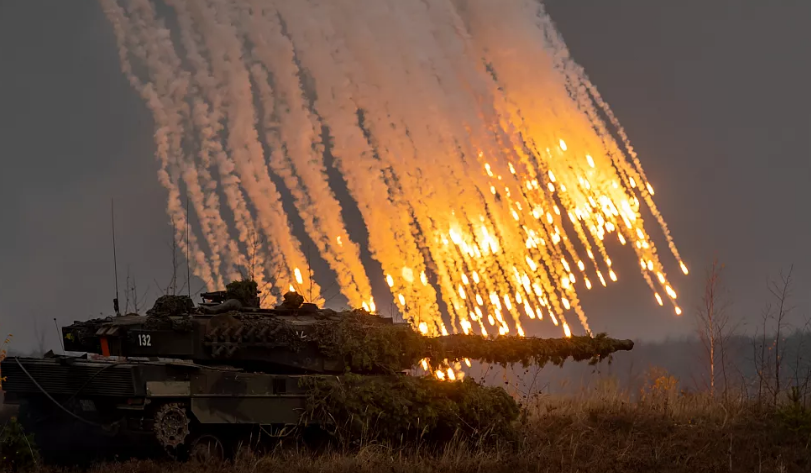As the United States doubles its tariffs on steel and aluminium imports to 50%, concerns are growing across Europe about the fallout — especially in Germany, where the steel industry faces a critical juncture. While pressure mounts from global oversupply and high energy costs, a surge in defence spending could offer a rare opportunity for revival.
The tariff hike, announced last week by former U.S. President Donald Trump, has prompted swift condemnation from the European Commission, which signaled plans for retaliatory trade measures. Germany, one of the EU’s industrial powerhouses, fears knock-on effects if global oversupply drives down steel prices. The steel sector, already battered by soaring energy prices and cheaper imports from China, could be hit particularly hard.
However, amid this turbulence, Germany’s defence sector may offer a glimmer of hope. German arms giant Rheinmetall has seen its share price soar in 2025, buoyed by promises from the new Christian Democrat-led government to increase defence spending. As demand for weapons rises, so too does the need for steel — especially in armoured vehicle production.
German MP Thomas Erndl, a defence policy spokesperson, acknowledged the steel industry’s challenges, noting the burden of high energy prices. “This is not just an economic issue but also a matter of security policy,” he told Euronews, adding that the government plans to cut electricity taxes and grid fees to ease costs — though direct subsidies are off the table for now.
Still, the broader picture remains grim. Crude steel production in Germany has dropped 12% this year, with just over 78,000 workers now employed in the sector — less than half of what it was in 1990. Tobias Aldenhoff of the German Steel Association described the industry as under “massive pressure” due to the shift to climate-neutral production and ongoing global competition.
The steel industry’s future may also hinge on international trade policy. Aldenhoff urged the EU to step up its defence against price dumping and overcapacity, especially from Asia. In March, the European Commission launched a new Steel and Metals Action Plan aimed at protecting the sector from unfair practices, with current safeguards set to expire in 2026.
One of Germany’s most iconic industrial firms, Thyssenkrupp, continues to symbolise the sector’s decline. The company is reportedly preparing to sell an additional 30% of its steel division to Czech billionaire Daniel Křetínský, who already owns a 20% stake. The sale is part of a broader breakup of the company, which has announced plans to cut 11,000 jobs after reporting a €23 million loss in the first half of the year.
While Rheinmetall welcomes the return of domestic armoured steel production — following years of reliance on Swedish imports — analysts caution that Germany’s rearmament is unlikely to rescue a sector long in decline.
The potential sale of Thyssenkrupp’s steel division may not impact defence supply chains directly, but it signals a deeper loss for German industry. As steel production becomes a more globalized and mobile enterprise, experts suggest Germany risks losing its historic edge in heavy industry — with uncertain consequences for its broader economic future.


